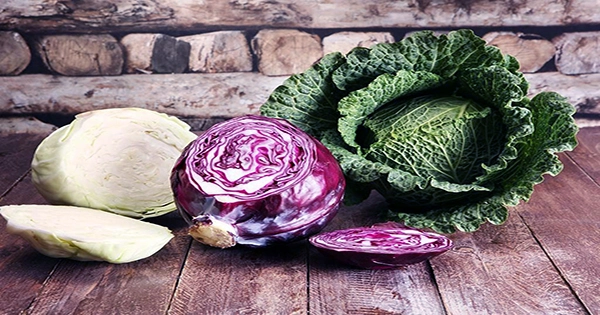Although this cruciferous vegetable is frequently considered to be too commonplace to warrant discussion, it is actually quite versatile, inexpensive, and simple to prepare. Antioxidants, vitamins, and substances that prevent and clean up carcinogens are abundant in it. It also helps with weight loss, contains minerals that stimulate digestive system cleansing, strengthens the immune system, and decreases serum cholesterol levels.
Due to its high fibre and water content, it reduces constipation and preserves gut health, which prevents the buildup of toxins that slow your metabolism and hasten the accumulation of calories. When fermented, it increases probiotics, which is also beneficial for gut health. It is the perfect diet food with only 33 calories per cup, no fat, and a high satiety value from its fibers. The fiber pulls out the cholesterol rather than allowing it to be absorbed in the blood, stacking up with nutrients, binding with acid in the intestines, and passing through the stool. The biggest chance for immunity comes from cabbage, which is a significant source of vitamin C and has 180% of the daily necessary amount in one cup. Sulforaphane, a sulfur-containing component that occasionally gives this vegetable a bitter bite, slows the growth of cancer cells. Red cabbage’s antioxidants, anthocyanins, prevent the growth of cancer cells and even eradicate those that have already manifested. An effective anti-inflammatory compound in cabbage is the amino acid glutamine.
It benefits brain health as a source of vitamin K, and the addition of B vitamins makes it a complete food for revitalizing. Additionally, cabbage has a concentration of antioxidants that lowers cardio-vascular risks, while calcium and potassium assist regulate blood pressure. Researchers have identified approximately 20 distinct flavonoids and 15 phenols in cabbage.
IMPORTANT WARNING
In cooler climates, cabbage is cultivated as a biennial crop. It is a nutrient-demanding plant by nature, making it vulnerable to parasites, bacteria, and fungi. Considering its sensitivity, let’s see what other factors we should think about before consuming.
CABAGE AND AYURVEDIC PRINCIPLES
Ayurveda focuses on the true nature of food and the alterations it causes in the three fundamental bodily systems, namely Vata (the system of activity), Pitta (the system of warmth), and Kapha (the system of stability). Due to its cold potency and dry nature, cabbage is thought to induce vata. Finely cut the greens, cook them well in oils and spices that soothe Vata, and consume them in moderation to reduce Vata aggravation. Raw foods have a considerably greater potential to upset the balance of the Vata person’s physiology. This benefits Pitta and Kapha individuals, especially in the late winter and early spring. Cabbage might be difficult for Vata people to digest when consumed uncooked. It can be extremely Pitta-vitiating when fermented with vinegar. It is goitrogenic, which means it includes compounds that may hinder the thyroid hormone’s ability to do its job. As a result, it may reduce thyroid function in individuals with hypothyroidism.
The secret is to always pay attention to your body. If eating greens cause you to feel bloated or uneasy in your stomach, your data is definitely out of balance. If you discover that your digestion is poorer, eating cooked greens with some unctuous matter (oils) at lunchtime when digestion is at its strongest will assist give you the digestive edge. Increase your consumption of cabbage gradually and give your body time to acclimatize if you want to get the most health advantages. To prevent constipation, drink plenty of water.
A word of caution: It’s best to consume less or moderately when it comes to greens because they tend to increase vata and are fragile by nature. They are best consumed in prepared form only during the Pitta (September to October) and Kapha (March to April) seasons.
















